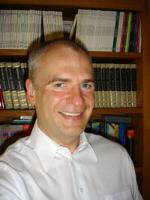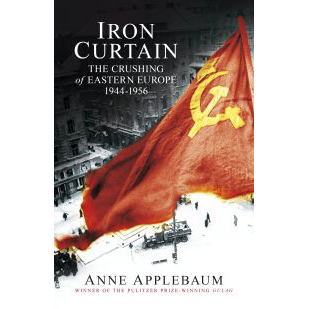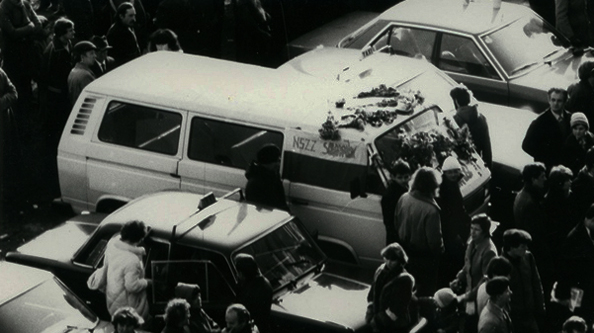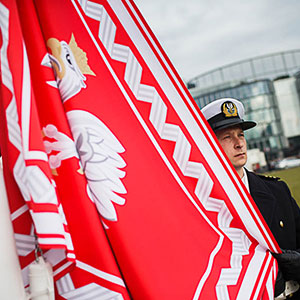 As we reflect on the 20 years since the fall of communism in Europe and ponder what the future may hold, CR recently had a chance to ask a few questions of Professor Marek Suszko who teaches at the Department of History at Loyola University in Chicago.
As we reflect on the 20 years since the fall of communism in Europe and ponder what the future may hold, CR recently had a chance to ask a few questions of Professor Marek Suszko who teaches at the Department of History at Loyola University in Chicago.
As we are observing the 20th anniversary of the fall of communism in Central Europe, what do you consider the most positive developments in Poland since 1989?
MS: It is extremely difficult to name just a few most important positive developments in post-1989 Poland as there had been many. One of them is undoubtedly the emergence of democracy. During the twenty-year period following the collapse of communism, Poles learned to enjoy free elections, political pluralism, and peaceful political transitions. And, although some complain about the continuous rivalry between Poland’s leading political parties, they seem to understand that political discourse is an integral part of the democratic process. The second and third most important developments would be Poland’s admissions into NATO and the European Union. The expansion of NATO into Eastern Europe signaled a definite end of the Russian/Soviet domination over the region. Poland’s entry into the European Union had significant moral implications as the country was taking its long-deserved position among the family of the European nations. In addition, Poland’s admission into the European Union had an enormous, mostly positive impact on the country’s economy, as it helped to stimulate its growth. Finally, one needs to mention the generation of Poles raised and educated after 1989. The emergence of this generation of self-confident and well educated young people is in my view the biggest success of post-communist Poland.
What do you consider Poland’s most important contribution to the European Union to date?
MS: Although Poland joined the European Union relatively recently, it made numerous contributions to this organization. Due to its geopolitical location on the border between the western and eastern parts of the European continent, Poland became a champion of the idea to expand the European Union eastwards. In fact, Poland became a model for other east European countries attempting to build democratic institutions within their borders. To older member-states of the European Union Poland showed itself as a strong and equal partner able to influence the policies of the Union. Currently a Pole (CR note: Jerzy Buzek) is heading the European Parliament while many others work as high-ranking officials in various administrative institutions of the European Union. One should only wish for this trend to continue.
What do you think are the factors contributing to Poland’s relatively healthy economic growth in the midst of the current global recession?
MS: I believe that this question is more suitable for an economist, not a historian. As a non-specialist I can only say that the Poles have always liked to build their lives and businesses on solid economic foundations. In a way their financial conservatism saved them from the financial disaster that initiated the current global recession. Also, many believe that the recession affected Poland’s economy to a much lesser extent than it did the economies of other European countries because of its relatively low dependency on foreign markets.
What do you think President Obama’s decision to cancel the European missile defense shield means to Polish and European security?
MS: I am not sure if it truly affected the problem of international security in any way. The majority of the Polish public opinion opposed the idea of installing the missile defense system on the Polish territory and viewed the government’s decision to take part in the negotiations with the U.S. administration as a political one. One can speculate that the Polish government wanted to increase the American presence in Eastern Europe also to balance the renewed Russian pressure on the region. At the same time the Poles used the issue of the missile defense system to change the attitude of the older member-states of the European Union towards their Eastern European partners. As for the issue of international terrorism, the majority of the Poles actually believed that construction of the defense system on the Polish territory would increase the threat of terrorist attacks on Polish interests. For the Polish side President Obama’s decision to cancel the project in Poland and the Czech Republic signals a shift in the administration’s attitude towards Eastern Europe. There are quite a few, however, who argue that even the previous administration was never fully committed to the idea and pushed it forward mostly to gain more ground in its negotiations with other regional powers.
Chicago is home to both President Obama and to the largest Polish-American community in the US. Why does it seem like they don’t really know one another and have just recently met?
MS: Well, this is the question for all of the leaders of the numerous Polish-American organizations in Chicago. Chicago is a working town and Polish-Americans in the city are hard workers who tend to avoid getting involved in politics. In addition, Chicago is a stronghold of the Democratic Party while the Polish Americans tend to vote Republican. This is why so few of them work as elected officials in the city government. It is at the local level that one builds one’s reputation as an effective politician. One more reason why the Polish-American community has been continuously failing to have its candidates elected to the local government is that in such a diverse city like Chicago an appeal to the interests of a single ethnic community, even as large as the Polish one, will never win enough popular vote. Many of the local leaders of the Polish-American community are yet to learn this lesson.
Thank you for your time, Professor Suszko.
CR



